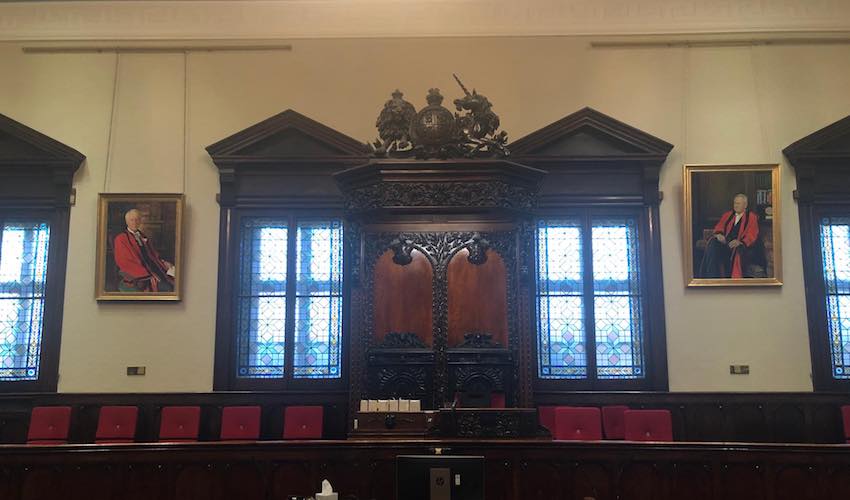

A town jeweller accused of laundering drug money wired cash between multiple bank accounts before buying gold from London bullion dealers, the Royal Court has heard.
On the third day in the trial of Darius Andrew Pearce, the court was told that Mr Pearce had agreed to buy £20,000 worth of special edition Jersey stamps, shortly after buying and selling gold in London’s bullion trading district, Hatton Gardens. Mr Pearce denies the charges against him.
Giving evidence via video-link, a stamp dealer recounted a meeting with Mr Pearce at his offices in west London on 7 May 2019, when he agreed to sell £20,000 worth of Jersey stamps to Mr Pearce which had come up for auction in Germany.
The defendant paid £150 in cash for the stamps that he took with him on the flight. However, the £19,850 balance was never paid after the bulk of the order - 20 boxes of collectors’ stamps - was confiscated by Jersey Customs after being couriered to the island. The stamps were eventually resold to another Jersey collector.

Pictured: The trial is taking place in the Royal Court.
The stamp dealer told the court that he had had previous dealings with Mr Pearce but on a far smaller scale. Under cross-examination by Mr Pearce, who is representing himself, the stamp dealer said that having such sizeable collection of Jersey stamps come on to market had been unusual, and had been due to a major Spanish stamp-collecting investment fund going into administration.
Also giving evidence was the Customs Officer that stopped Mr Pearce when he flew back to the Island later that day, to ask for his reason for travelling.
Mr Pearce, who was carrying some scrap gold and the £150-worth of stamps, said he had been buying and selling gold in London, and provided the officer with four documents, including invoices that showed he had bought bullion worth more than £25,000 and then had immediately sold it.
The officer told the court that when he had then asked what had happened to the money, Mr Pearce said the transactions were in the UK so Jersey didn’t have any authority to ask.
“He became extremely agitated and that we were wasting his time and he would be writing to ministers,” the officer told the court.
Next, a forensic accountant, who had been asked by the Crown to analyse Mr Pearce’s accounts, shared his findings.
Questioned by Crown Advocate Matthew Maletroit, he said that Mr Pearce’s records of income had been steady until 2016 but then the level of daily takings had increased significantly, and there was also a growing number of large payments.
These included transfers - of just under £37,000 in one instance - to bullion dealers in London. The accountant methodically went through various payments and transfers detailed in Mr Pearce’s financial records to show how money had moved in, out and between business and personal accounts to ensure that the invoices could be paid.
Cash was usually transferred from Mr Pearce’s main ‘Jersey Online Traders’ business account into the account of bullion dealers, the accountant said. Before that, cash was often paid into the account, and associated accounts, via a paying-in machine at HSBC’s King Street branch.
Questioning the forensic accountant, Mr Pearce asked him if his definition of cash included cryptocurrency and the swapping of silver for gold, which was usual in the trade. The witness said he had only defined it as the amounts in the ‘cash’ column in Mr Pearce’s accounts.
Mr Pearce added that the increase in sales since 2016 were attributable to the only other bullion dealer in Jersey going out of business that year, so he became the only trader. He had kept it a mostly cash-based business, he said, because the fees charged by card-payment providers were too high for such a low-margin industry.
The trial continues.
Jeweller in money laundering trial raised suspicions at London bullion company
Comments
Comments on this story express the views of the commentator only, not Bailiwick Publishing. We are unable to guarantee the accuracy of any of those comments.